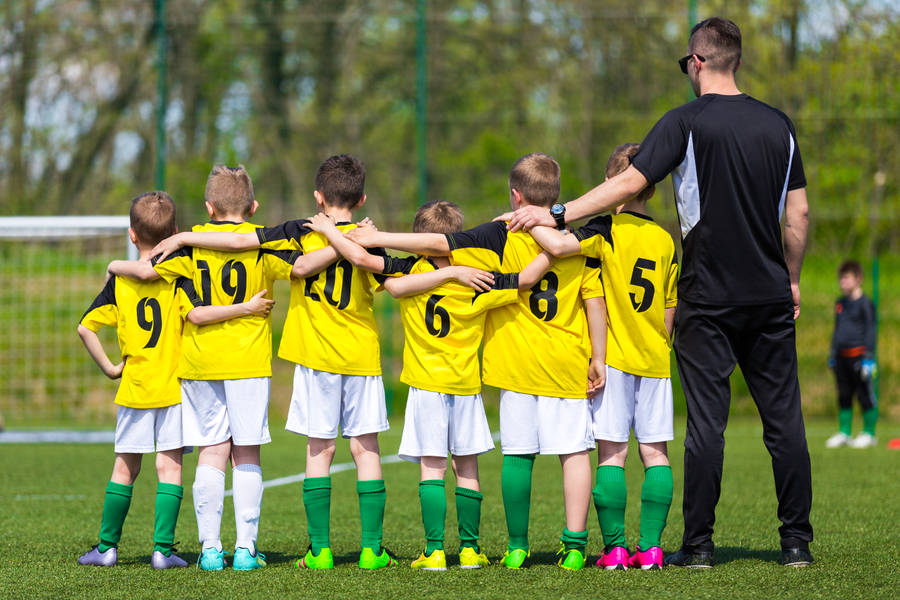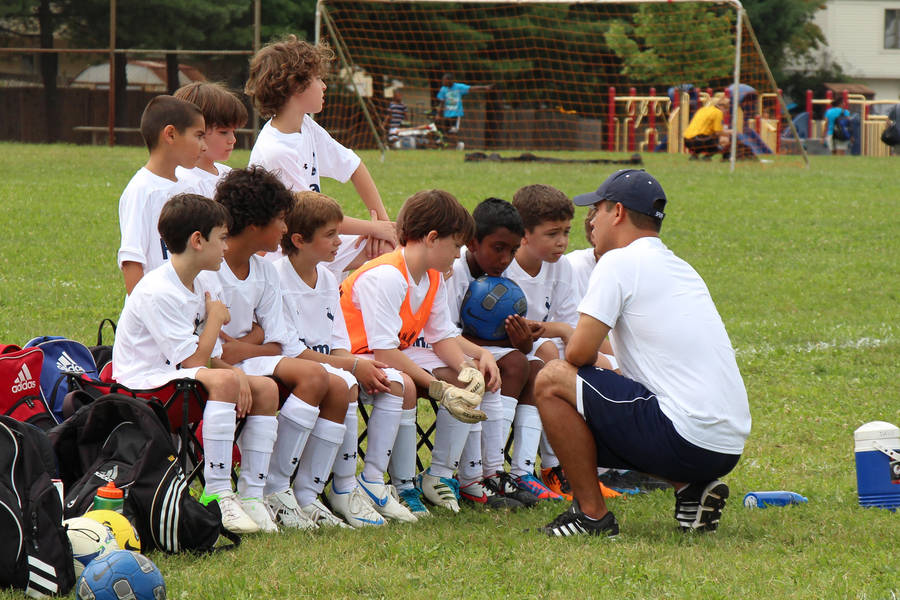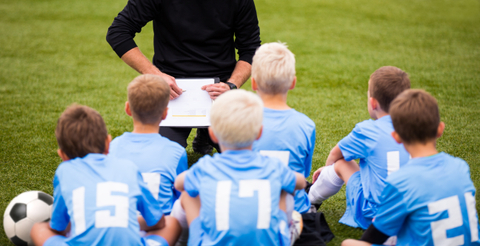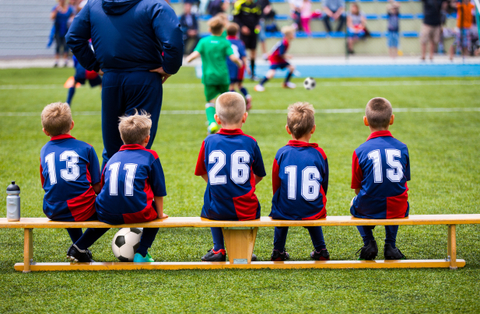
Just how bad is the crisis in youth mental health and can Junior Grassroots Football help and support young people with this?
In recent years, the United Kingdom has witnessed an alarming surge in mental health issues among young people, painting a bleak picture of a generation grappling with unprecedented challenges. This crisis, exacerbated by the COVID-19 pandemic and underfunded services has left parents, educators, and healthcare professionals searching for solutions.
The statistics are indeed sobering. According to NHS Digital, one in six children aged 5 to 16 were identified as having a probable mental health problem in 2021, a significant increase from one in nine in 2017. The situation is particularly dire for older children, with nearly one in four 16 to 18 year olds experiencing mental health problems.
These issues manifest in various forms. Young people are increasingly reporting feelings of worry, fear and low mood, often struggling to cope with academic pressures and social expectations. The number of children and young people with eating disorders has skyrocketed, with referrals to NHS services nearly doubling since before the pandemic in 2019. Alarmingly, rates of self-harm among
teenagers have risen dramatically with some studies suggesting up to one in five young people engage in self-harming behaviours at some stage. The constant connectivity and comparison culture enflamed by social media platforms have contributed to feelings of inadequacy and anxiety amongst our youth. As a coping mechanism, more young people are turning to unhealthy outlets such as vaping, alcohol and drugs, exacerbating their mental health issues. The pressure to perform well in exams and secure future prospects has intensified, leading to burnout and mental exhaustion. Both traditional and online forms of bullying continue to have devastating effects on some young people's self-esteem and mental health.
The root causes of this crisis are complex and range from societal pressures and economic uncertainty to the impact of the pandemic and climate anxiety. The situation is further complicated by long waiting lists for underfunded and inadequate mental health services, leaving many young people without the support they desperately need.
Against this backdrop, Junior Grassroots football emerges as a powerful tool for supporting positive mental wellbeing. Regular physical activity from football training and matches is well known to have positive effect on mental health. Exercise releases endorphins, the body's natural mood elevators, helping to combat feelings of anxiety and depression. The structured physical activity of football can provide a healthy outlet for stress and pent up emotions. One of the most significant benefits of Junior Football is the sense of belonging to something it generates. Being part of a team can combat feelings of isolation and loneliness, which are often at the root of some mental health issues. The camaraderie developed on and off the pitch can provide young people with a support network and a sense of belonging.
As we know football is like life, an absolute roller coaster and full of ups and downs. Learning to cope with losses, mistakes, and setbacks on the pitch can help young people develop resilience that translates to other areas of their lives. This emotional strength is crucial in navigating the challenges of adolescence and beyond. As young players develop their skills and contribute to their team's success, they experience a boost in self-esteem. This confidence can have a ripple effect, improving their outlook in other areas of life. For many young people struggling with mental health issues, having a structured routine can be immensely beneficial. Regular training sessions and matches
provide a sense of purpose and something to look forward to. Having to prepare for a match by organising their kit, boots and shin pads gives them a focus.
The immersion into a match or training session can serve as a form of mindfulness and escape, allowing young people to be present in the moment and temporarily set aside their worries. This mental break can be rejuvenating for those dealing with anxiety or intrusive thoughts. Imagine a team of under 12’s taking a moment before kick off to centre themselves, to acknowledge their nerves and to channel that energy into positive performance. This isn't just about football, it's about equipping young people with coping mechanisms that will serve them well throughout their lives.
Resilience, often touted as a key attribute in sport, takes on new meaning when viewed through the lens of mental health. In Junior Grassroots Football, we have the opportunity to reframe failure as a stepping stone to success. When a young striker misses an open goal, it might not be a case practising finishing drills to improve technique but instead it might be a case of developing the mental strength to bounce back, to learn from the experience and to approach the next opportunity with a renewed confidence. By having an environment where mistakes are seen as learning opportunities rather than catastrophes, we're building a generation of players who are not just physically tough but mentally robust.
Coaches and other players can serve as positive role models, demonstrating healthy ways to handle stress, communicate effectively and maintain a balanced lifestyle. These influences can be particularly valuable for young people who may lack such figures in other areas of their lives. The football pitch can be a safe space for emotional expression, allowing young people to channel their feelings in a constructive manner. Whether it's the joy of scoring a goal or the frustration of a tough moment, these experiences provide opportunities for processing emotions in a healthy way.
While no-one is suggesting that Junior Football can single-handedly solve the youth mental health crisis, it is already playing a significant role in supporting young people's wellbeing.
Equipping coaches with basic mental health first aid skills can help them identify and support players who may be struggling. Ensuring that football programmes are accessible and welcoming to all, regardless of skill level or background can help reach more young people who could benefit.
The youth mental health crisis in the UK is indeed severe, but Junior Grassroots Football offers a ray of hope. By providing physical activity, social connection and a sense of purpose, football can play an important role in supporting young people's mental wellbeing. As the nation continues to grapple with this crisis, we should not underestimate the power of our game to change lives both on and off the pitch.

















